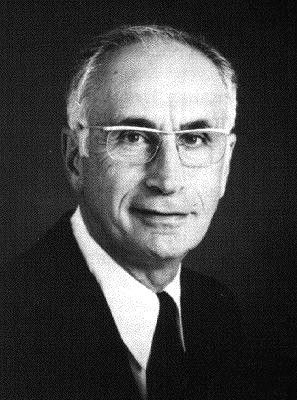| Profile | Major Works | Resources |
Armen A. Alchian, 1914- 2013.

Armen Alchian's output may be sparse and informal, but it has been among the most influential. Although he was at the Rand Corporation and UCLA for most of his career, Alchian's approach to economics has been closely associated with the "Chicago School". The reason for this judgment rests on his virtuoso use of Neoclassical price theory in some rather complicated corners of economics, thus making him one of the founding father of New Institutional economics.
In his famous 1950 contribution to the "maximization debate" in the theory of the firm, Alchian introduced the "survival" principle of evolution into analyzing market structure: perhaps not all firms consciously maximize profits; but the competitive price mechanism and the market will weed out those who do not. Although at any time we may have non-profit-maximizers, in the long run, as the process of evolution continues, only profit-maximizers will survive. Thus, the assumption of profit-maximization in economic theory, Alchian argued, was a valid generalization even if it did not correspond to fact at any point in time. This argument is clearly more acute than the simpler one offered by Milton Friedman, and served as an important precedent for "evolutionary" economics.
Alchian's critique of Keynes's theory of investment (1955) is a classic in investment theory while his work on unemployment (1969) was one of the first to consider the natural rate of unemployment arising from "job search". His 1972 work with Harold Demsetz on property rights was a generalization of Coase's work. Finally, his famous 1964 textbook with W.R. Allen is an exemplary treatment in the Chicago vein - preserving and extending the Neoclassical market paradigm to handle all sorts of economic problems and describing purported "market failures" not as failures as such but as "market outcomes" in the face of transactions costs and information problems.
|
Major Works of Armen A. Alchian
|
| HET Resources |
|
Resources on Armen Alchian
|
All rights reserved, Gonšalo L. Fonseca
